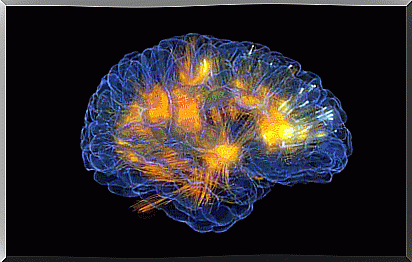Stress Memory Loss: What Is It?

: we forget appointments, conversations, names and even that important thing we had to buy. We find it difficult to keep information and even retrieve already consolidated memories.
alter the functioning of the brain and many of its structures .
Stress-induced memory loss: why does it happen?
the most absolute amazement: how could we have forgotten to pick up our son from the English course? We run down and when we get to the car, we realize we don’t have the keys.
. This glucocorticoid secreted by the adrenal gland is released in response to stress. Excessive cortisol levels at any given time are not a problem, in fact they can improve the formation of new memories.

Effects of cortisol on the brain
- It acts as a toxic agent.
- L’
hippocampus
, associated with memory and emotions, it loses volume.
- Stress-induced memory loss is also associated with cortisol hindering proper blood circulation in the brain. It receives fewer nutrients and less oxygen, all of which leads us to run a greater risk of exhaustion, stroke, etc. It is a fact that we must take into consideration.
- If the release of cortisol is constant, we will perceive another effect: we will produce less endorphins and this translates into greater discomfort, a clear inability to enjoy those activities that we previously enjoyed: sports, laughter and good times with our loved ones. , the food…
- It should be noted that cortisol also affects sleep-wake cycles: we suffer from periods of insomnia or nights with continuous awakenings.
What to do to reduce stress-induced memory loss?
or vitamin D). Hypothyroidism can also cause these cognitive changes. To avoid this, therefore, it is advisable to speak to specialized professionals.

- Identify the stressors. Become aware of how our body reacts: muscle tension, stiff neck, shoulders, jaw, heart palpitations …
- Stress is not managed by avoiding the focal points that take away from us
calm
. It manages itself by dealing with threatening stimuli face to face, establishing priorities, deciding, taking control of one’s reality.
-
Adequate breathing techniques.
-
Re-reading our reality: become aware of what is really important in theourlife, slow down, appreciate the present in a more relaxed way.
-
Eat healthy: fresh fruit and vegetables, lots of water, oats, valerian infusions, chamomile …
-
Magnesium-based supplementsthey are excellent for protecting the brain from the effects of stress.
-
Go for a walk every day for half an hour:we will clear our heads, face new perspectives and improve blood circulation so that a greater supply of oxygen and nutrients reaches the brain.









